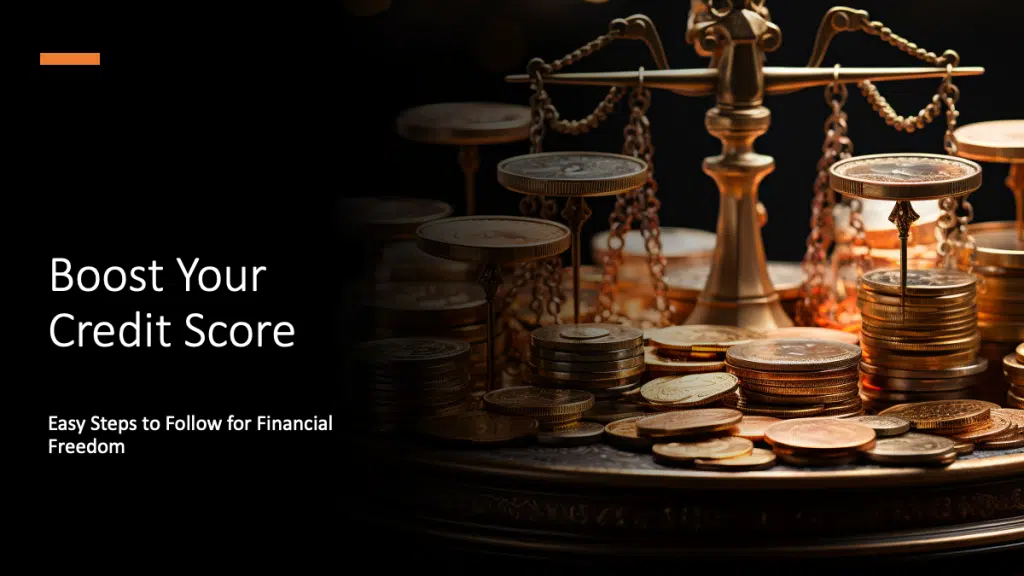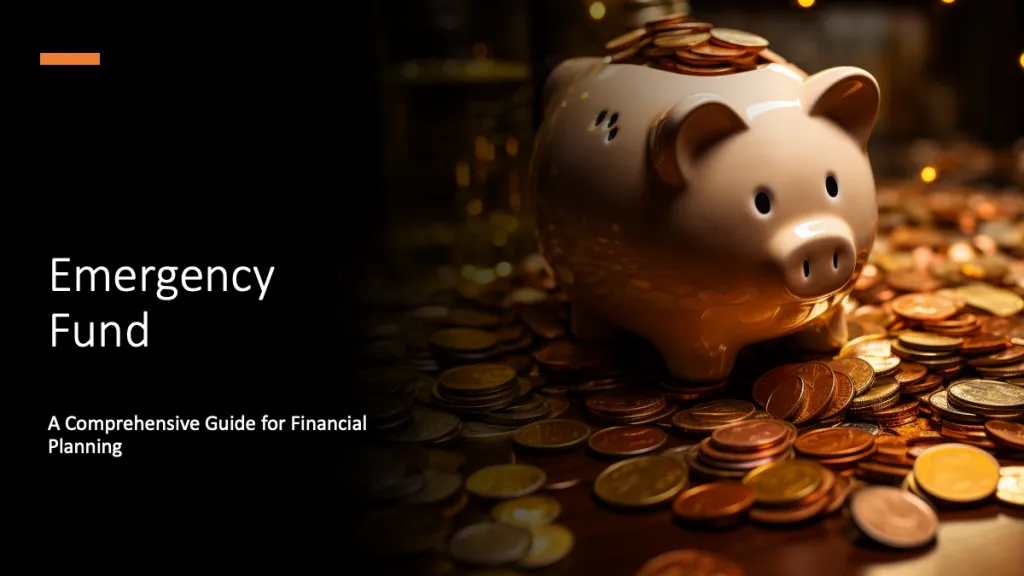What Is Personal Debt: Your Financial Obligations
In a world driven by credit, personal debt is a term that buzzes around us almost daily, but what does it truly entail? At its core, personal debt signifies a financial obligation where an individual, the borrower, owes money to a lender or creditor.
Navigating through the sea of loans, credit card bills, and mortgages can be overwhelming, so distinguishing between good debt and bad debt is crucial for your financial health. Understanding the role of the borrower – your responsibilities and potential risks – and the creditor’s expectations is the stepping stone towards fiscal stability.
Join us as we delve into personal debt, clarifying its framework and implications for a clearer financial future.
Understanding Types of Personal Debt
Grasping the different forms of personal debt is crucial when you’re looking to manage your finances more effectively. Generally, we can break down personal debt into two main categories: unsecured and secured debt. There’s also a significant distinction between revolving and installment debt, each with its unique impact on an individual’s financial standing.

Unsecured vs. Secured Debt
Unsecured debt does not require any collateral. This debt typically includes credit cards, personal loans, and student loans. Since these debts are more risky for lenders, they often have higher interest rates.
In contrast, secured debt is backed by assets that act as collateral. For example, auto loans and mortgages are types of secured debt. If you default on the loan, the lender has the right to take possession of the asset used as security, such as your car or home.
Revolving Debt vs. Installment Debt
Another way to categorize personal debt is through revolving or installment systems. Revolving debt, like credit lines, offers a maximum borrowing limit you can draw on, payback, and borrow from again. This type of debt is common with credit cards and home equity lines of credit, influencing your financial flexibility and, potentially, your credit score.
On the other hand, installment debt consists of loans with fixed payments over a set period. These include auto loans, where the borrower pays back the principal and interest over the loan’s term until it’s fully repaid. Understanding where these loans fit into your personal debt profile is essential for effective debt management.
- Unsecured Debt: High risk for lenders, no collateral, often higher interest rates.
- Secured Debt: Lower risk, collateral necessary, could result in asset loss if defaulted.
- Revolving Debt: Flexible credit limits can impact financial standing and credit score.
- Installment Debt: Fixed payments, a clear timeline, a key element in debt strategy.
Understanding the Causes of Personal Debt
Coming to grips with the root causes of personal debt can help individuals avoid the common pitfalls that lead to financial strain. It’s not just about the money you owe; it’s about understanding the why behind the numbers.

Common Reasons for Accumulating Debt
Many factors can contribute to the buildup of personal debt. From the allure of credit card spending to the essential needs that life may throw our way, here are the most prevalent ways people find themselves indebted.
- Lack of budgeting or financial planning
- Overusing credit cards for daily expenses
- Taking out loans for big purchases without adequate savings
- Expensive habits or lifestyles that exceed income
- Insufficient income or loss of employment making ends meet difficult
The Psychology of Spending
How we think about money plays a significant role in our spending habits. The instant gratification that shopping provides can often overwhelm our better judgment, leading to a cycle of unnecessary purchases and, consequently, debt. This psychological aspect cannot be underestimated when examining the causes of personal debt.
When Life Throws a Curveball: Unexpected Expenses
No matter how well we plan, life can be unpredictable. Medical emergencies, car repairs, or sudden home damage can all result in substantial costs on short notice. These unexpected expenses often force individuals to borrow money, exacerbating their debt.
Interest Rates: The Silent Debt Multiplier
Interest rates also hold a powerful influence over the growth of personal debt. Even a seemingly manageable debt can spiral out of control if high interest rates are involved. Credit cards, payday loans, and other forms of high-interest borrowing can often make the original amount borrowed much more daunting due to the interest accumulating over time.
The Impact of Personal Debt on Credit Scores
Understanding what is personal debt and its repercussions are crucial when considering financial health. A significant factor often overlooked is the effect that personal debt has on one%u2019s credit scores. Below, we’ll explore how it can alter the landscape of your financial credibility.
How Personal Debt Affects Credit Scores
The different forms of personal debt, from credit cards to loans, each dictate your credit score. Credit agencies look at the variety of debt and the reliability of reimbursement. On-time payments can improve your score, whereas missed or late payments can damage you.
The Debt-to-Income Ratio Equation
Credit scores also consider your debt-to-income ratio, which compares your total monthly debt payments to your monthly income. Lenders use this ratio to gauge your ability to manage monthly payments and repay borrowed money. A lower ratio is preferred for a healthier credit score.
The Long-Term Implications of High Credit Utilization
High credit utilization, which means you’re using a large percentage of your available credit, can signal to creditors that you’re overextended and may have trouble paying back new loans. This can lower your credit score and affect your ability to acquire credit at favorable terms in the future.
- Identify the types of debt you hold and prioritize paying off those with the highest interest rates
- Maintain a low debt-to-income ratio to present a better credit risk to lenders
- Keep credit utilization low by managing balances and credit lines effectively
In conclusion, personal debt has a multifaceted impact on credit scores, influencing everything from loan interest rates to approval for new credit lines. Keeping debt under control is about reducing what you owe and maintaining and potentially improving your credit score.
Understanding Your Debt-to-Income Ratio
The debt-to-income ratio (DTI) is a critical financial benchmark comparing monthly debt payments to gross monthly income. It’s a tool lenders use to gauge your ability to manage payments and handle additional borrowing. A lower DTI indicates a good balance between debt and income%u2014in other words, you’re not over-leveraged. Conversely, a high DTI could signal potential financial strain and lessen your chances of obtaining new credit.
Calculating your DTI is straightforward: sum up your monthly debt payments and divide them by your pre-tax monthly income. Then, multiply the result by 100 to get a percentage. For example, if your monthly debts amount to $1,000 and your gross income is $4,000, your DTI is 25%.
Seeking Guidance on Your Debt-to-Income Ratio
Financial advisors play a pivotal role in helping individuals manage their DTI. They can provide strategies and personal budgeting advice that can assist in lowering this ratio. This might include:
- Creating a detailed budget to control spending and identify areas for cost reduction,
- Advising on debt consolidation or restructuring to reduce monthly payments,
- Offering insights on increasing income, like seeking better employment or finding part-time work.
A healthful debt-to-income ratio can give you the flexibility to invest, save, and handle unforeseen expenses, ensuring long-term financial health. Consequently, maintaining a good DTI is not just about securing new credit; it’s essential to holistic financial stability.
Explore Debt Consolidation Strategies to Simplify Your Finances
Struggling with multiple debt accounts can be overwhelming. Consolidating your debt, however, might be the lifeline you need. Debt consolidation merges multiple debts into one, ideally with a lower interest rate, simplifying your payments and potentially saving you money over time.
Defining Debt Consolidation
Debt consolidation involves taking out a new loan to pay off various debts, especially unsecured ones. This strategy allows you to focus on a single debt payment, usually at a reduced overall interest rate, which can help manage your monthly budget and even improve your credit score over the long term.
When to Recommend Debt Consolidation
Debt consolidation is typically recommended when:
- You’re juggling multiple high-interest debts, such as credit card balances or personal loans.
- You have a steady income and can commit to a consistent monthly payment.
- Your credit score qualifies you for a consolidation loan at a lower interest rate than your current debts.
Likely Outcomes and Considerations
While debt consolidation can provide relief and a clear path out of debt, there are critical considerations to keep in mind:
- Interest Rates: The main advantage of debt consolidation is securing a lower overall interest rate, reducing the amount you pay over time.
- Loan Terms: Longer repayment periods might lower your monthly payments but could result in higher overall interest costs.
- Credit Impact: Initially, applying for a consolidation loan may affect your credit score, but consistent on-time payments will likely have a positive impact.
- Fees: Watch out for any fees associated with the consolidation process that might reduce savings.
You can decide whether debt consolidation is right for you by carefully weighing these outcomes and considerations.
Debt Management Plans (DMPs): A Strategy to Regain Financial Control
Debt Management Plans (DMPs) are a structured and supportive solution for regaining control over personal debt. A DMP is a service provided typically by credit counseling agencies to help you pay off your unsecured debt through managed, regular payments. Let’s explore how DMPs function and differentiate from other debt-relief options.
The Purpose and Function of DMPs
The primary purpose of a DMP is to simplify your debt repayment by consolidating your unsecured debts into a single, more manageable monthly payment. This plan helps reduce the interest rates on your debts and extends the payment period, which reduces the size of your monthly payments. Participating in a DMP also sends a positive message to your creditors that you’re earnestly working towards repaying your debts.
How DMPs Differ from Other Debt Relief Options
DMPs are unique because they provide a structured repayment plan without requiring a loan or negatively impacting your credit score as much as debt settlement or bankruptcy might. While debt consolidation involves taking out a new loan to pay off multiple debts, a DMP works with your existing debt accounts, purporting to lower interest rates and waive certain fees. Unlike bankruptcy, DMPs allow you to repay your debt in full over time, avoiding the severe credit implications and public record of a bankruptcy filing. Moreover, DMPs are not as drastic as debt settlements that aim to negotiate a lower total debt owed, which can also result in a significantly damaged credit score.
In summary, a Debt Management Plan can effectively manage personal debt without resorting to more drastic measures. DMPs can help individuals pave a smoother road to financial recovery by providing a manageable payment structure and potentially reducing interest rates. Remember, it’s crucial to consider all options and consult with a financial advisor to determine the best course of action for your individual situation.
Explore Your Personal Debt Relief Options
When you’re overwhelmed with personal debt, the weight can feel crushing. Fortunately, several strategies can provide relief and hope on your journey to financial freedom. Let’s examine a few viable personal debt relief alternatives that might fit your unique situation.
Debt Settlement
Debt settlement involves negotiating with creditors to pay less than you owe. This process can provide significant savings, but it also poses risks such as potential damage to your credit score and tax implications. It’s essential to approach debt settlement with a clear understanding and, often, with professional guidance.
Consolidation Loans
Consolidation loans are designed to streamline your debts. By merging multiple debts into one loan with a single monthly payment, you may get a lower interest rate and simplify your finances. A stable income is important since you’ll need to repay this new loan over time.
Balance Transfer Credit Cards
Another option is using balance transfer credit cards. These cards typically offer a low or 0% interest rate for a limited time, providing a window to pay down debt without accruing additional interest. However, paying attention to the terms is crucial, as interest rates can skyrocket after the promotional period ends.
Other Considerations
While the above solutions can be effective, they may not suit everyone. Each option comes with its considerations and potential drawbacks. Always conduct thorough research or consult with a financial advisor to understand the implications before deciding.
- Debt settlement may lead to less debt but can hurt your credit score.
- Consolidation loans simplify payments but require discipline to pay off the new loan.
- Balance transfer cards offer temporary relief, but the rates can increase sharply after the introductory period.
Personal debt doesn’t have to be a life sentence. By exploring these debt relief options, you can develop a strategic plan leading to financial stability and peace of mind.
The Role of Budgeting in Managing Debt
For individuals grappling with personal debt, budgeting is more than just a tool; it’s a cornerstone of successful debt management. By understanding your financial landscape and strategically allocating funds, budgeting becomes an empowering process that paves the way to financial solvency.
The Importance of Budgeting in Debt Control
Without a clear budget, it’s challenging to identify opportunities to save money and allocate extra funds to paying off debt. Effective budgeting clarifies your financial capacity, helping you prioritize debt payments and avoid the accumulation of additional liabilities.
Strategies for Creating Effective Budgets to Pay Off Debt
- Analyze your income and expenses: List all sources of income and every expense, no matter how small, to get a true picture of your financial situation.
- Identify and cut non-essential spending: Focus on reducing discretionary expenses that do not contribute to your well-being or long-term goals.
- Set clear debt payoff goals: Whether paying off the highest-interest debt first or tackling smaller debts for quick wins, having a strategy can motivate you to stick to your budget.
- Adjust budgets monthly: Your financial situation can change from month to month. Regular reassessments allow you to refine your budget and stay on track with your debt payoff plan.
Using Budgeting as a Tool to Prevent Future Debt Accumulation
Beyond paying off existing debt, a forward-looking budget considers future expenses and savings goals. Establishing an emergency fund and planning for large purchases will reduce the likelihood of falling back into debt. Budgeting is about escaping the debt cycle and crafting a sustainable financial lifestyle that can withstand unexpected economic challenges.
Credit Counseling Services: Guiding You Through Personal Debt Management
When navigating the complexities of personal debt, having an expert can make all the difference. Credit counseling services offer hope for individuals struggling to manage their debt effectively. Let’s explore credit counselors’ vital role in personal debt management and understand when it’s best to seek their guidance.
The Role of Credit Counselors in Managing Personal Debt
Credit counselors are trained professionals who specialize in assessing financial situations and providing clear strategies to help you tackle personal debt. They work with you to:
- Review your financial situation in detail
- Develop a personalized and realistic budget plan
- Provide education on smart money management and spending habits
- Negotiate with creditors to potentially lower interest rates or waive fees
- Set up a Debt Management Plan (DMP) if suitable
- Guide you toward financial stability and debt-free living
When Financial Advisors Should Refer Clients to Counseling
As a financial advisor, recognizing when to refer your clients to credit counseling is crucial for their financial health. Consider suggesting credit counseling when your clients:
- Express overwhelming stress regarding their personal debt
- Struggle to make minimum payments on debts regularly
- Have little to no understanding of how to manage their debt independently
- Could benefit from a structured repayment plan
- Need professional negotiation with creditors
Ensuring your clients receive specialized support from certified credit counselors can prevent the adverse effects of mismanaged personal debt and foster a productive path toward financial recovery and security.
Understanding Bankruptcy: A Final Option for Personal Debt Relief
When all other avenues to manage personal debt have been exhausted, bankruptcy may present itself as the last resort. It is a serious step that carries significant consequences for a person’s financial standing. Although it can provide a fresh start, it also affects credit scores and future financial opportunities.
Types of Personal Bankruptcy
There are two main types of personal bankruptcy: Chapter 7 and Chapter 13. Chapter 7, also known as liquidation bankruptcy, can wipe out many unsecured debts. However, the debtor may sell certain assets to pay off creditors. On the other hand, Chapter 13 allows debtors to keep their property and repay creditors through a court-approved repayment plan.
The Impact on Your Financial Future
Filing for bankruptcy has a long-lasting impact on your credit report. Chapter 7 bankruptcy remains on your credit report for up to 10 years, and Chapter 13 stays for up to 7 years. This can make obtaining credit, buying a home, or even finding employment difficult. However, one can rebuild one’s credit score with time and responsible financial behavior.
- Chapter 7 Bankruptcy: Could result in property loss; remains on your credit report for a decade.
- Chapter 13 Bankruptcy: You retain your possessions while on a repayment plan; it affects credit scores for up to 7 years.
Note: Bankruptcy is a legal procedure that should not be taken lightly. Seeking advice from a qualified credit counselor or a bankruptcy attorney before making the decision can be crucial.
The Psychology Behind Spending Habits and Debt Accumulation
Understanding the psychological triggers of spending is crucial for grappling with personal debt. The path to debt often begins with spending behaviors that may go unnoticed. Multiple factors, from emotional spending to the instant gratification of credit purchases, can contribute to a cycle of debt accumulation.
Spending Habits Leading to Debt
Spending habits play a significant role in personal debt. Whether it%u2019s through impulsive purchases, using credit for everyday items, or succumbing to social pressures to spend, these behaviors can quickly lead to financial burdens. The allure of immediate rewards can overshadow the long-term financial repercussions of debt.
Addressing Behaviors with Financial Guidance
Financial advisors have the potential to break this cycle by helping clients identify harmful spending habits. Individuals can learn strategies to control impulses and prioritize financial stability with a professional’s guidance. Budgeting and establishing an emergency fund are both tools that an advisor might suggest to keep spending in check and prevent debt accumulation.
- The connection between emotional well-being and financial decisions
- Strategies to overcome the temptation of easy credit
- The importance of setting financial goals to prevent unnecessary spending
- Tools and techniques for monitoring and controlling personal spending
The Role of Emotional Spending
Emotions can have a profound impact on how we manage our finances. Stress, happiness, or sadness can all lead to ’emotional spending,’ often a precursor to debt. Understanding the emotional triggers that lead to spending can help individuals develop healthier financial habits and avoid the pitfalls of personal debt.
Personal debt rarely accumulates overnight. It results from ongoing habits and psychological patterns that can be addressed and transformed. With the right mindset and support from financial advisors, individuals can understand and change their relationship with money, paving the way for a healthier financial future free from debt.
Ethical Considerations for Financial Advisors Handling Personal Debt
Financial advisors are crucial in guiding individuals through the complexities of personal debt. Advisors need to approach these sensitive situations with a high degree of ethical conduct. Below are key ethical considerations that financial advisors should heed when handling personal debt.
Maintaining Transparency with Clients
Financial advisors must ensure that clients are fully informed about their financial situation and the implications of any advice or strategies provided. Transparency is key to building trust and helping clients make informed decisions.
Understanding the Advisor%u2019s Role and Responsibilities
Advisors should clearly understand their professional boundaries and the extent of their responsibilities. They must avoid promising unrealistic outcomes and always provide advice that aligns with their client’s best interests.
Navigating Conflicts of Interest in Debt Advice
Conflicts of interest can arise when advisors stand to benefit from the products or services they recommend. Advisors must acknowledge and manage these conflicts to maintain the integrity of their advice.
- The advisor should disclose any potential conflicts of interest to the client to ensure transparency.
- Financial advisors must prioritize the client’s financial well-being above their gains or third-party incentives.
- Choosing the best course for the client may mean advising solutions that yield no personal gain for the advisor.
Financial advisors should adhere to ethical principles that foster trust and respect with their clients, ensuring that their guidance on personal debt truly serves the client’s best interests.
Integrating Personal Debt into Your Financial Blueprint
Personal debt can often seem like a roadblock to financial freedom, but it can be managed effectively within a broader financial strategy with the right planning. Long-term strategies require careful consideration of one%u2019s overall financial picture, balancing debt repayment with investment and savings goals.
Long-Term Strategies to Manage Debt Within Financial Plans
Focusing on long-term goals is essential for successfully integrating debt management into your financial planning. This includes:
- Assessing current debts and creating a prioritized repayment plan.
- Allocating funds for debt reduction while considering retirement savings and investments for growth.
- Exploring refinancing options to reduce interest rates and monthly payments, freeing up cash flow for other objectives.
The Role of Asset Diversification and Emergency Funds
Asset diversification is a crucial tactic in reducing risk and achieving financial stability. By spreading investments across various asset classes, personal debt can be counterbalanced with potential growth from other investments, providing a buffer to help manage debt more effectively in the long term. Additionally, establishing an emergency fund is fundamental. It acts as a financial safety net, ensuring unexpected expenses do not derail your debt repayment or financial plans.
In conclusion, integrating personal debt into financial planning is a delicate balance, necessitating a thoughtful approach to each decision. With the right structure, you can move towards a more stable and secure financial future while managing your personal debt.
Understanding the Regulatory Framework for Debt Advice
When it comes to providing expert advice on managing personal debt, financial advisors must navigate a complex landscape of legal requirements and regulations. These rules are designed to protect consumers from misinformation and unethical practices. By understanding and adhering to these guidelines, advisors can ensure they offer responsible and lawful debt advice.
Key Legislation Governing Debt Advice Services
The provision of debt advice is heavily regulated to safeguard consumer interests. This involves a series of laws and regulatory bodies that set the standards for ethical practice. Among the most significant pieces of legislation is the Fair Debt Collection Practices Act (FDCPA), which limits the behavior and actions of third-party debt collectors. Similarly, the Credit Repair Organizations Act (CROA) ensures that companies offering credit repair services do so fairly and transparently.
Essential Compliance in Client Dealings
Compliance is key in the field of debt advisory services. Financial advisors must ensure that all advice aligns with the latest statutes and regulatory guidelines. This includes maintaining meticulous records, transparently disclosing all relevant information to clients, and regularly undertaking professional development to stay abreast of changes in the regulatory environment.
- Transparent Practices: Advisors must openly communicate fees, risks, and the options available to clients.
- Record-Keeping: Advisors must keep detailed records of their interactions and client correspondence.
- Ongoing Education: Regular training and education are necessary to keep up with regulatory changes and ensure advisors provide the most current advice.
Adhering to these regulatory aspects protects consumers and reinforces advisors’ credibility and professionalism in personal debt management.
Wrapping Up: Key Insights into Personal Debt
Throughout our extensive look into personal debt, we’ve covered various critical topics, from understanding its various types – credit card debt and auto loans – to exploring strategic solutions like debt consolidation and management plans. We’ve examined the psychological facets of spending, the importance of budgeting, and the impact that debt can have on an individual’s credit score and overall financial health.
Promoting a Culture of Continuous Learning
Financial advisors must stay abreast of the latest debt management strategies and regulatory changes. Engaging in continuous learning ensures compliance and enhances the quality of advice for clients struggling with personal debt. Always remember that your knowledge directly impacts your client’s financial well-being.
Take Action in Debt Management
It’s time to integrate the insight shared into your practice. Encourage a proactive approach in managing debt and guide your clients towards financial stability. Use tailored budgeting plans, offer comprehensive credit counseling, and guide them through the intricacies of bankruptcy when necessary.
In conclusion, you can significantly improve your clients’ financial situations by tackling personal debt head-on and utilizing a blend of compassion, knowledge, and strategic planning. Remember, as a financial advisor, you play a pivotal role in charting a path to your clients’ monetary success. Act now to make a lasting difference.









